I had an interesting conversation with a client recently who was expressing doubt about whether their audience, less technical business professionals over 40, was participating in any meaningful way in social media. As a result of this conversation, I spent some time digging into the data, and I wanted to share what I learned.
Your Competitors Are Investing in Social Media
Companies are continuing to invest more money in social media, which will continue to fuel the growth of social media technologies. At least some of your competitors have plans to invest more resources and increase spending on social media. Here are a few examples from eMarketer and Forrester.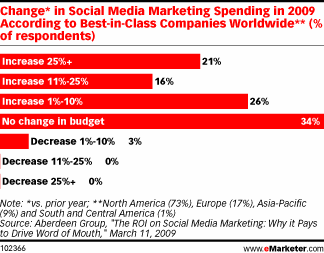
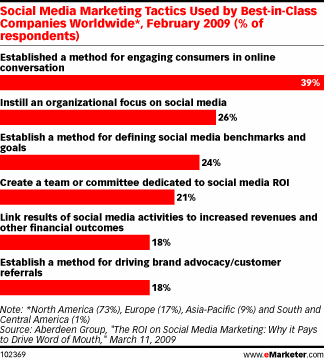
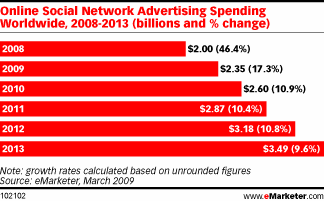
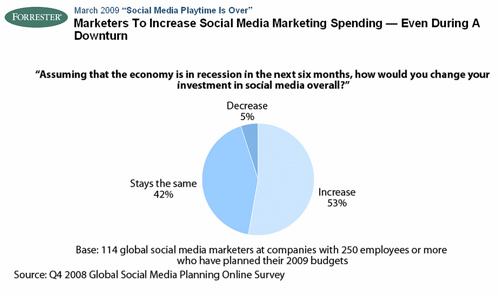
Twitter Users Are Trending Older
According to Nielsen, Twitter is growing rapidly and people using Twitter tend to trend older than you might expect with 35 – 49 year-olds making up almost 42% of the traffic to Twitter.com.
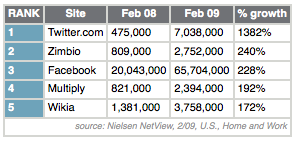
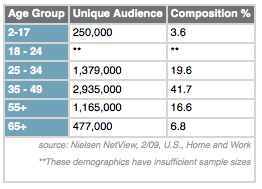
Nielsen has also found that the majority of Twitter users access it from work:
“Twitterers (a.k.a. Tweeters) are not primarily teens or college students as you might expect. In fact, in February the largest age group on Twitter was 35-49; with nearly 3 million unique visitors, comprising almost 42 percent of the site’s audience. We found that the majority of people visit Twitter.com while at work, with 62 percent of the combo unique audience accessing the site from work only versus 35 percent that accessed it from home only.”
comScore has also noticed a similar trend in Twitter users:
“18-24 year olds, the traditional social media early adopters, are actually 12 percent less likely than average to visit Twitter (Index of 88). It is the 25-54 year old crowd that is actually driving this trend. More specifically, 45-54 year olds are 36 percent more likely than average to visit Twitter, making them the highest indexing age group, followed by 25-34 year olds, who are 30 percent more likely.”
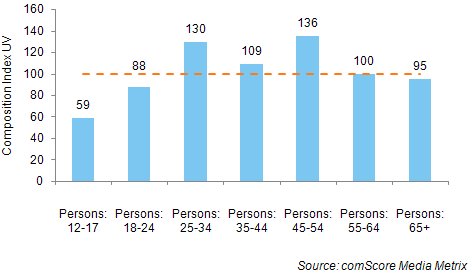
Facebook Users Are Trending Older
According to Nielsen:
While social networks started out among the younger audience, they’ve become more mainstream with the passage of time. Not surprisingly the audience has become broader and older. This shift has primarily been driven by Facebook whose greatest growth has come from people aged 35-49 years of age (+24.1 million). From December 2007 through December 2008, Facebook added almost twice as many 50-64 year old visitors (+13.6 million) than it has added under 18 year old visitors (+7.3 million).
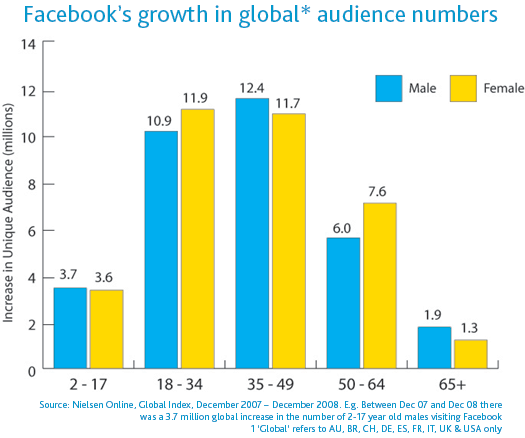
According to Inside Facebook:
Looking at Facebook US audience growth over the last 180 days, it’s clear that Facebook is seeing massive increases in adoption amongst users 35-65. The fastest growing demographic on Facebook is still women over 55 – there are now nearly 1.5 million of them active on Facebook each month.
The biggest growth in terms of absolute new users over the last six month came amongst users 35-44. Over 4 million more US women 35-44 and nearly 3 million more US men 35-44 used Facebook in March 2009 compared to September 2008.

Online Community Participants Also Increasing in Age

There you have it. A big data dump of various research into social media and online community age demographics. If you know of other research, please feel free to share them in the comments.
Related Fast Wonder Blog posts:









